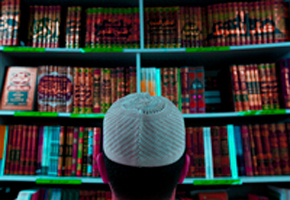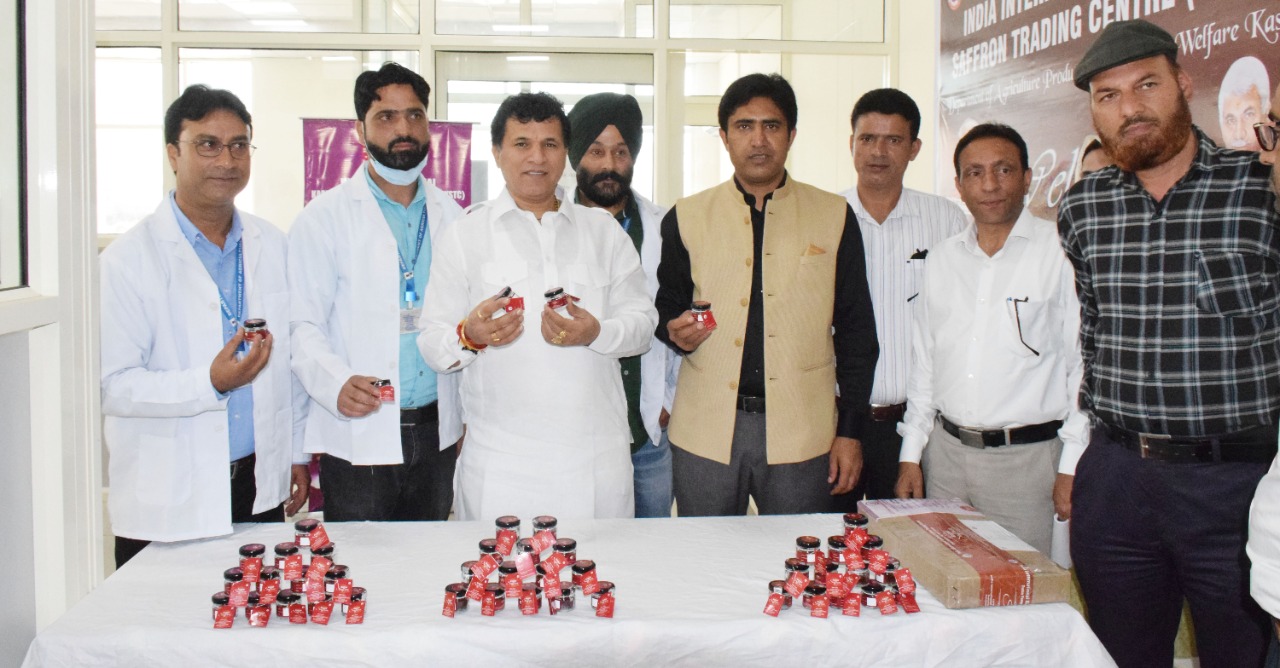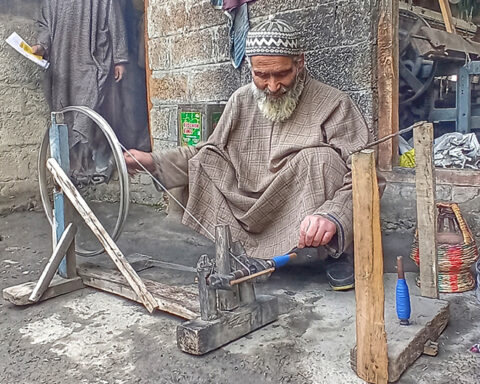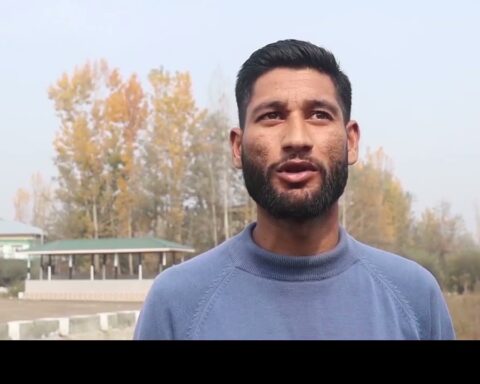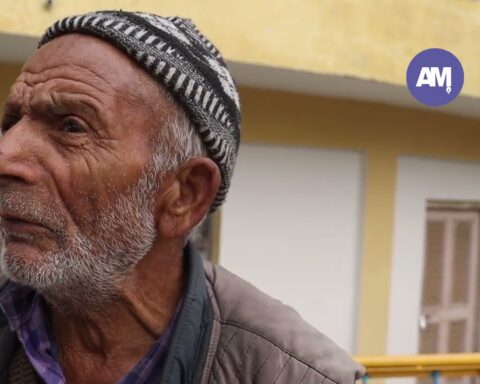It is a well-known fact that education plays a vital role in the development of a civilization and is considered as “the transmission of the civilization”. “The right to education is paramount and part of the inherent dignity of all humans; it is a tool to facilitate communication and bring cooperation among societies and, by extension, a means of bringing peace, stability and more mutual understanding between communities and nations.” Every one of us is very interested in purpose and meaning in our lives. We generally become deeply concerned about it whether it is an illness, social problem, economical problem or political problem etc. We generally take life easy and for granted until an event wakes up and forces us to ask, “what are my responsibilities and what am I doing with my life?” this force gave us sense and to encourage us then we attend to clarify our real values. The most effective lifestyle, however, results from a conscious decision to live purposefully before we face a triggering event. Purpose starts with the acceptance of basic truth and the truth is that all solutions are hidden in the Islamic education.
The prophet (saw) as the final messenger confirmed that He was sent to accomplish the best of morality to humanity through the Quranic revelation. Revelation opens the door for reformers who revive the spirit of Islam and ensure the rehabilitation of the society. Such revivalists appeared in many parts of the Muslim world. And one of the great Islamic scholars in the land of turkey appeared known as Bediuzzaman Said Nursi.
Education in Islam.
Education has become a challenge to Muslim Ummah And Muslim scholars put their efforts in educational field and Bediuzzaman Said Nursi is one among them who provides the carpet of prophet’s vision before Ummah in scientific and technology age. It is pertinent to mention that the scholars from Muslim Ummah themselves provide space to those who criticize to Islamic Educational system. It is clear that it’s Islam which has given a best opportunity to seek knowledge. The importance and excellence of knowledge has been highlighted both directly and indirectly in many places in the Holy Qur’an. Indeed one of the essential duties and responsibilities of Prophethood was the dissemination of knowledge and wisdom to all. Allah Almighty says:
كَمَآ أَرْسَلْنَا فِيكُمْ رَسُولاً مِّنكُمْ يَتْلُواْ عَلَيْكُمْ ءَايَــــٰـــتِنَا وَيُزَكِّيكُمْ وَيُعَلِّمُكُمُ ٱلْكِتَــــٰـــبَ وَٱلْحِكْمَةَ وَيُعَلِّمُكُم مَّا لَمْ تَكُونُواْ تَعْلَمُونَ
Likewise, we have sent you (Our) Messenger (blessings and peace be upon him) from amongst yourselves who recites to you Our Revelations and purifies and sanctifies (your hearts and ill-commanding selves) and teaches you the Book and inculcates in you logic and wisdom and enlightens you (on the mysteries of spiritual gnosis and divine truth) which you did not know. [Al-Baqara, 2:151.]
The Holy Qur’an also states:
قُلْ هَلْ يَسْتَوِى ٱلَّذِينَ يَعْلَمُونَ وَٱلَّذِينَ لَا يَعْلَمُونَ إِنَّمَا يَتَذَكَّرُ أُوْلُواْ ٱلْأَلْبَــــٰـــبِ
Say: ‘Can those who have knowledge and those who do not be alike?’ So only the wise do receive the admonition. [al-Zumar, 39:9.]
إِنَّمَا يَخْشَى ٱللَّهَ مِنْ عِبَادِهِ ٱلْعُلَمَــــٰۤـــؤُاْ إِنَّ ٱللَّهَ عَزِيزٌ غَفُورٌ
So only those of His servants who have knowledge (of these realities with a vision and outlook) fear Him. Surely, Allah is Almighty, Most Forgiving. [Fatir, 35:28.]
A number of Prophetic traditions also talk directly about knowledge being obligatory.
The Holy Prophet (blessings and peace be upon him) said:
طَلَبُ الْعِلْمِ فَرِيضَةٌ عَلَى كُلِّ مُسْلِمٍ
Acquisition of knowledge is binding on all Muslims (both men and women without any discrimination). [Narrated by Ibn Maja in al-Sunan, 1:81 [224.] He (blessings and peace be upon him) said at another place:
مَنْ سَلَكَ طَرِيقًا يَلْتَمِسُ فِيهِ عِلْمًا سَهَّلَ اللهُ لَهُ بِهِ طَرِيقًا إِلَى الْجَنَّةِ
Allah Almighty makes the path to paradise easier for him who walks on it for getting knowledge. [Narrated by Muslim in al-Sahih]
Bediuzzaman and his contribution in the field of Education?
“Bediuzzaman Said Nursi was born in eastern Turkey in 1877 and died in 1960 at the age of 83 after a life of exemplary struggle and self –sacrifice in the cause of Islam was a scholar of the highest standing having studied not only all the traditional religious sciences but also modern science and had earned the name Bediuzzaman, (wonder of the age), in his youth as a result of his outstanding ability and learning.
“Bediuzzaman’s life –time spanned the final decades of the caliphate and ottoman empire ,its collapse and dismemberment after the first world war .His life witnessed the aftermath of formation in 1923 ,the first thirty -seven years of the republic ,of which the years up to 1950 are famous for the government’s repressive anti-religious policies.”
Nursi’s vision of education
As far as Nursi’s vision of education is concerned “From his earliest youth, Badiuzzaman Said Nursi was possessed with the desire to restore Islam to its rightful position as “master of the science” and fount of knowledge, for it was source of “true” civilization and human progress. To this end he dedicated himself to reform and updating of Madrasah education in his native eastern Anatolia and of the disciplines taught therein”.
“Bediuzzaman Said Nursi was a great reformer in the twentieth Century Turkey. He played a significant role in the transformation of Turkish society. Like many educated Muslims, Said Nursi was not satisfied with the alternatives represented by both the new secularist westernizing visionaries…new secular intellectuals… and the traditionalists who failed to comprehend the nature of change in all its dimensions. He criticized existing institutions and mentalities and worked to provide an alternative …an authentically Islamic and modern approach to meet the challenges of the times. He developed his ideas on educational reform and created his own method of teaching, combining the religious science with modern science. To declare that ignorance is the leading enemy and to think that this enemy can be eliminated only through education.”
In evaluating Nursi’s views on education, we may note his linking ilm (knowledge) and iman/Islam. The terms ilm, iman and Islam had been examined individually but the fundamental interlink between them had rarely before been explored. In this regard, Nursi’s concern with knowledge based on belief in God, and knowledge produced from belief in God is very much worthy of consideration. He states “The light of conscience is religious sciences (ulûm-u diniya). The light of the mind is civilized sciences (ulûm-e-deniye). Reconciliation of both manifests the truth. The student’s skills develop further with these two (sciences). When they are separated, from the former superstition and from the latter corruption and skepticism is born.”
Badiuzzaman Said Nursi presented a well educated model of community. Nursi’s views on unifying educational system by his Madrasat-uz- Zahra approach are original and unique. His views that religious subjects should be taught in the secular schools (mektabs) and the positive science in the religious schools (medreses) so that the structure of secular education are salvaged from irreligious behavior and the religious schools from bigotry, are very progressive. Moreover, his views about integration of science and theology with education are very futuristic and rewarding given the pathetic situations of Muslims in educational field worldwide. Education based on faith was the central point of Nursi’s educational philosophy. Nursian concern with knowledge based on belief in God is very much worthy of consideration. He believed that the conscience is illuminated by the religious sciences and the mind is illuminated by the science of civilization and wisdom occurs from the combination of these two. Nursi says, “The light of conscience is religious sciences (ulum-u- diniya). The light of mind is civilized sciences (funun-u-medeniya). Reconciliation of both manifests the truth.
Nursi argues that man came to this world to be perfected by means of knowledge and supplication based on belief. “The highest aim of creation and its most important result is belief in God. The most exalted rank in humanity and its highest degree is the knowledge of God contained within belief in God. The most radiant happiness and sweetest bounty for jinn and human beings is the love of God contained within the knowledge of God.”
Knowledge of God is thus the essence of reality, and the fruit of man’s existence, and its aim. According to this idea, knowledge, love and belief are very much interrelated. This interrelationship forms the basis of Nursi’s view of education.
According to Nursi God Almighty, in order to display His infinite power and the endless embroideries of His Names has created man-like cosmos in order to be called upon and remembered.
“From an early age Nursi grasped the realities of the age of science and its implications, both for the educational system and for the material progress of the Islamic world. His urgent concern was to dispel “misunderstandings and false delusions” about “the clash and conflict” between science and Islam, and to reinstate the physical and mathematical sciences in their rightful position”.
“His ideas on educational reform combined religious sciences and modern sciences in the belief that the positive sciences would corroborate and strengthen the truths of religion”.
Nursi differentiated between philosophy that challenges the revealed scriptures and philosophy that does not: in his terminology “the negative” and “the positive” philosophy. Although he attacks negative philosophy, he encourages positive philosophy.
This clearly shows the distinction Nursi made between transmitted and intellectual knowledge and the need for a combination of both. Many times Nursi addresses the value of reason and the importance of using it. He believed it would find a place “to persuade the deniers” to believe. But reason alone has human limitations: he recommended “opening the door to the reason, but not taking the will from it.”
CONCLUSION
Islam encourages its followers to seek knowledge for the benefit of humanity and it is the essence of faith .Said Nursi tries and put all his efforts to explore the comprehensiveness of education and its importance for the Muslim Ummah renaissance and the preservation of Islamic civilization. His main purpose was Muslim should be well acquainted with both traditional and modern education. For this dream to come lot of struggle is needed by utilizing his own scientific knowledge .Nursi aimed to demonstrate that there is no clash between science and true religion. Almost every part of Nursi’s Risale-i- Nur attempts to teach how to look at and “read” the physical universe.
Nursi’s concept of education is not empty he believes that knowledge and man’s learning assists him in his bringing to realisation the vicegerency of the earth. The unique civilization feature of Medrese-tu’z Zuhra model makes it a most suitable and culturally viable model for Muslims in its global perspective also. Nursian model provides an alternative which meets the demands of modern times but does not neglect the much needed values the education should imbibe to face the civilizational challenges and the onslaught of atheism, materialism and westernization on Islam and its civilization
There are multiple issues and hurdles regarding the application of Said Nursi’s concept of education on various fronts whether it is an administration, infrastructure, funding need to be addressed. However, dream of Said Nursi could not come true overnight rather it needs a lot of energy and sacrifice of years. Therefore, to put forward and effective Said Nursi’s model of education, the faith -based education should be made compulsory along with other modern subjects then we all feel satisfaction and the concept of world and God will lead us towards peace, prosperity, happiness and brotherhood which is the main purpose of Knowledge.

